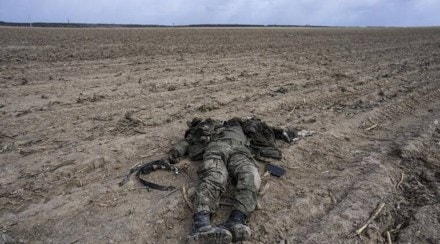By Syed Ali
Simmering since 2015, in the aftermath of the Arab spring and resurrecting the turmoil in the Balkans and the Slavic region, the war in Ukraine is the tipping point in the global order. The American hegemony after the breakup of the Soviet Union outlasted its rivals into the 21st century only being challenged by the People’s Republic of China after its integration into the WTO and fashioning itself as the manufacturing hub of the world. China’s new role in the global order, India’s assertion as a counterbalance in the subcontinent, and its role in new regional agreements such as QUAD based on ongoing global issues created the vacuum for Russia to maintain de facto control over its neighborhood as it did under soviet coalition, and considers itself to be the heir apparent to Soviet Union. This struggle to maintain control comes at a cost of Russia orchestrating coups in the region, installing dictators and coercing countries to follow foreign policy not interfering in Russia’s role as the leader in the region.
Russia has been involved in several wars after the breakup of the Soviet Union: beginning from its meddling in the Civil war in Georgia by supporting south Ossetian rebels and shelling Georgian villages. The most brutal intervention being the violence in Dagestan to control Chechen insurgency leading to the beginning of foreign jihadists rebranding it into war on Islam and involvement of foreign militias flocking to Chechnya. In response, Russia bombed Grozny, the capital of Chechnya hitting random targets in the city and shelling the city to ground before declaring victory over the rubble. In 2003, the UN called Grozny ‘the most bombed city in the world’. After this, the reins of the Dagestan region were handed over to the war lord of the region; Ramzan Kadyrov who is famously an ardent supporter of President Putin and his regional antics.
Russia under Putin has been vastly distinct from the regime of his former boss Boris Yeltsin, Mr. Putin has a strong grip over all his deputies and his secondary leadership doesn’t inspire belief in his succession. On the contrary, besides Mr. Putin everyone is disposable and transferable in the Russian government proclaiming Mr. Putin as the de facto and undisputed leader of the country with occasional assassination of opposition leaders; Boris Nemtsov and the recent famous poisoning of Putin critic Alex Navalny with novichok nerve agent eventually being evacuated to Berlin for treatment. Coincidentally and unfortunately Putin’s critics have met a similar fate as observed in several dictatorial regimes, like Saddam’s Iraq, Assad’s Syria and Venezuela. Dissent democracy, and diversity are anathema to dictatorial regimes around the world and like most dictators they all meet a violent end unless not succeeded by a leader through a clean transfer of power.
However, Mr. Putin’s tight grip and hyper control over his country’s affairs and future doesn’t leave much hope for a clean transfer of power. Over the last decade, since Putin’s presidency his government and prime minister’s office have been replenished twice by Mr. Dmitry Medvedev and recently by Mr. Mikhail Mishustin. Lack of electoral democracy and constant stifling of dissent is increasingly shrinking the space for succession of Russian leadership. Most importantly, counter narratives do not hold any ground in Russia leading to blanket perception about the diverse Russian populace- in the world’s biggest country, Mr. Putin presents himself not as the voice of People of Russia but as the only voice of all Russians. Despite the oppression, Russians represent diverse views and boldly represent their opinions despite the fear of assassination of their opinions tend to gather momentum and sway opinion. Russians realize the leadership vacuum, the megalomania of and paranoia of Mr. Putin hampers the global perception on what every day Russia looks like to the world.
Mr. Putin’s neighboring Europe: the self-proclaimed guardian of democracy and dissent is the biggest buyer of Russian crude for its energy security and has in recent years increased its dependence on Russia. At the same time, it continues to present dualistic opinions about Russia in practice. On the other hand the British foreign secretary is in India to harbor support against Russia at the same time crude import from Russia is on the rise with no end in sight despite American commitment to support European energy security. Economic sanctions, banishment of Russian oligarchs and billionaires across the world is quickly being acted upon however it has done little to detract Mr. Putin from his motives to bomb Ukrainian cities and civil facilities across the country.
Mr. Putin has been unapologetic about his campaign in Ukraine and has made no qualms in christening Mr. Zelensky as a Nazi and western puppet challenging Russian border security. Although people in Russia have made no bones about their vehement opposition to Russian military barbarism in Ukraine and the consequence it holds for the people of Russia, venturing out for international opportunities. The despondency in the Ukrainian cataclysm and the lack of opposition in Russia checking Mr. Putin to step back from his cannibalistic military excursion is destroying the future of Ukraine and Russia alike.
(The author is an independent analyst on Policy and Sustainability. Twitter: @Alinyst Views expressed are personal and do not reflect the official position or policy of Financial Express Online. Reproducing this content without permission is prohibited).
